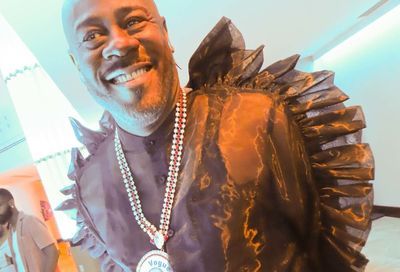WWH Speaks to D.C. Meningitis Concerns
Whitman-Walker Health advises Washington-area gay and bi men not to worry after California and New York cases
Local health experts say there’s no cause for concern among gay and bisexual men in the District who might be worried about contracting meningitis following the death of Brett Shaad, 33, a gay West Hollywood resident, last week, as reported by the Los Angeles Times, and a small outbreak in New York City, primarily among gay men, that killed seven in recent years.
Dr. Ray Martins, the chief medical officer for Whitman-Walker Health, the local nonprofit community health center specializing in LGBT-sensitive care, posted a statement on Whitman-Walker’s website Tuesday telling District residents that there is currently no ”outbreak” of meningitis among gay or bisexual men in D.C. If such an outbreak were to occur, the D.C. Department of Health (DOH) would issue a warning, Martins explained.
There has been no statement regarding an outbreak of meningitis published on the D.C. Department of Health website this year. Messages left with the DOH were not returned.
Although there is a vaccine for bacterial meningitis, it is not kept in stock because it is not commonly used, Martins said. Whitman-Walker spokesman Chip Lewis confirmed to Metro Weekly that patients may request the vaccine, but it will take about a day from the time of the request to arrive at the health center.
The New York Department of Health and the city’s Gay Men’s Health Crisis (GMHC) recommend vaccinations for those men traveling to New York who are gay or otherwise have sex with men (MSM) who have had intimate contact with partners they met through social websites such as Manhunt or Adam4Adam, a digital application such as Grindr or Scruff, or at a bar or party since Sept. 1, 2012.
Meningitis is transmitted through exposure to an infected person’s oral fluids, whether through kissing, coughing, sneezing or sharing utensils or drinking glasses. Symptoms include sudden onset of fever, headache and stiff neck, and are usually accompanied by nausea, vomiting, increased sensitivity to light and confusion, and usually develop within three to seven days after exposure. Anyone with symptoms should see a health care provider.
”Again, take all precautions to protect your health, but do not panic,” Martins said in Whitman-Walker’s notification. ”There is no current emergency in D.C. If one is declared at some point, WWH will be there to help.”
Support Metro Weekly’s Journalism
These are challenging times for news organizations. And yet it’s crucial we stay active and provide vital resources and information to both our local readers and the world. So won’t you please take a moment and consider supporting Metro Weekly with a membership? For as little as $5 a month, you can help ensure Metro Weekly magazine and MetroWeekly.com remain free, viable resources as we provide the best, most diverse, culturally-resonant LGBTQ coverage in both the D.C. region and around the world. Memberships come with exclusive perks and discounts, your own personal digital delivery of each week’s magazine (and an archive), access to our Member's Lounge when it launches this fall, and exclusive members-only items like Metro Weekly Membership Mugs and Tote Bags! Check out all our membership levels here and please join us today!


















